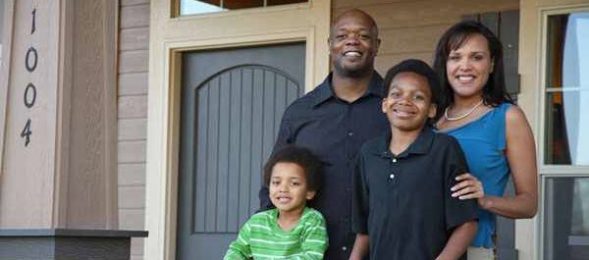For the last three years, I had been ambivalent about home ownership. But with a recent (disrespectful) rent hike, and a conversation with my husband that determined that we will be planting roots in our current city, I figured it was time to buy a home that we could afford.
In speaking with my friend Danielle Douglas, journalist and banking reporter at The Washington Post about the rent vs. buy debate, she provided me a few more rules of thumb to support my decision.
For those of you trying to figure out if you are better off buying or renting, keep the following in mind:
Signs That You Are Better Off Renting
1. You are a nomad.
If you do not plan on staying where you live for more than a couple of years, it is probably best to rent. Real estate experts say the cost of owning a home balances out with cost of renting after five to seven years.
By then, all the money spent in closing costs and mortgage fees will be a distant memory and you’ll be building equity in the home. Housing prices will likely have risen by then, making it easier to sell your home at a higher price.
2. You live in an expensive city.
Depending on the housing prices in your area, you might not be able to afford to buy. In places like Washington D.C or New York City, where home prices can easily top $500,000, renting may be the more financially responsible choice.
Signs That You Are Ready To Buy
3. It’s a buyer’s market.
Although mortgage rates have crept up in recent weeks, they are still at historic lows, which make purchasing a home very attractive.
4. Your credit is fabulous.
Lenders are generally interested in borrowers with scores of at least 620, but the higher the score the better the terms of the mortgage. Check your credit score.
5. You can afford to buy a home AND still eat.
Financial advisers say you should have at least 10 percent of the purchase price saved up for a down payment. There are few low down-payment programs left, and a whole lot of uncertainty about the future of those programs.
Click Here to Download a FREE Copy of the BMWK Generational Wealth Pledge for Black Families!
Use your down payment as a guide for what you can afford, experts say. If you have $30,000 saved, look at homes that are no more than $300,000. No matter what you decide, keep in mind that your housing costs should not eat up more than 30 percent of your income. Consider your finances and calculate costs.
6. You have an emergency fund. It’s important to have at least six months worth of expenses saved in case of a broken water heater or cracked pipes after purchasing a home.
BMWK: Are you ready to buy a home AND still live?
